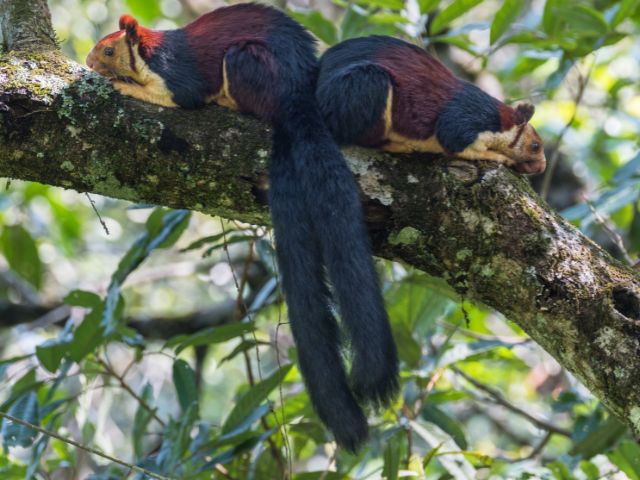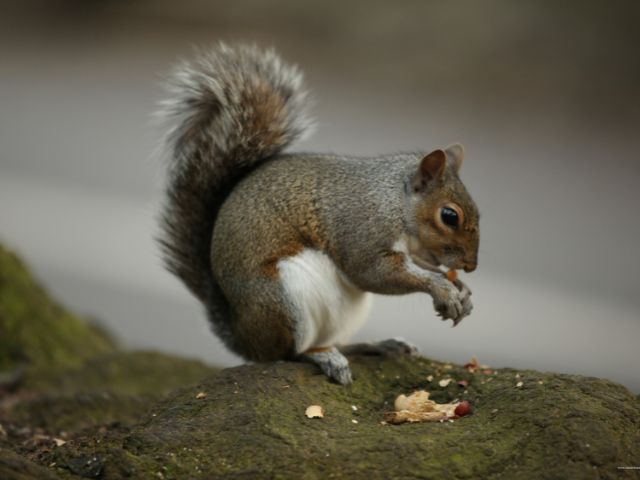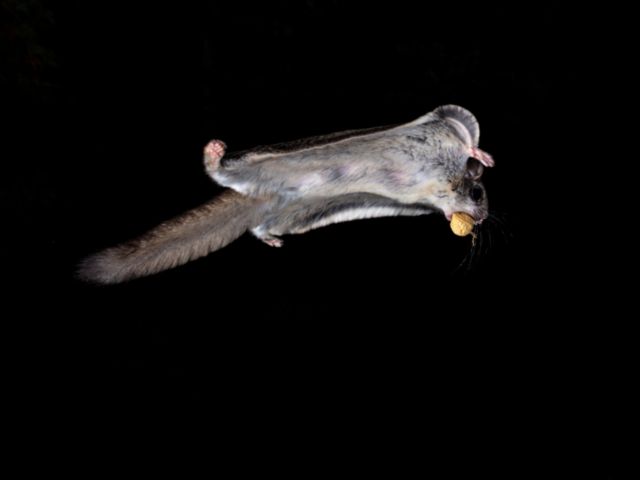This squirrel appreciation day, we want to answer some of the most commonly asked questions about these cute little critters. From their origins to their eating habits and the many weird and wonderful types of squirrels that exist on earth, we explore it all!
Also, don’t forget to download our free awareness days calendar, to stay up to date on more animal awareness events!
Are Squirrels Native To England?
Yes, they are, but only the red squirrel. These auburn beauties have lived in the UK for at least 10,000 years! The more commonly seen grey squirrel was an introduced species, brought in by the Victorians from North America in the 1800s.
Outside the UK, you can find squirrels all over the world as they live in every continent besides Australia and Antarctica.
How Many Types Of Squirrels Are There?
A lot! Today, more than 200 species of squirrels exist across the globe, of which there are three different types.
These are:
- Flying squirrels
- Ground squirrels
- Tree squirrels
The Indian giant squirrel holds the top spot as the biggest of the bunch, growing as large as 1 metre in length. In contrast, the tiny African pygmy squirrel as you would guess from the name, is the smallest, coming in at 2.8-5 inches!

Can Squirrels Die From Falling?
Contrary to popular belief (and a misleading name!) the flying squirrel can’t actually fly, so they can indeed be at risk of falling from a tree.
They do still hold bragging rights over their ground and tree squirrel relatives though, as they can glide through the air using the wing-like connecting skin between their limbs.
Generally speaking, squirrels of any kind aren’t likely to die from falling out of a tree, which is great news considering their aerial acrobatics! This is because they only tend to climb to manageable heights in trees.
Should they fall, they will extend their legs and expand their arms when falling so it acts like a parachute and minimises the impact.
Do Squirrels Hibernate?
No! Squirrels are active 365 days of the year! To get through the harsh winters, they will get organised ahead of time and stash a season's supply of food in underground hiding places.
Did you know that a squirrel's brain will also grow at this point to help them remember all of its food stashes? The hippocampus increases by 15%!
What Do Squirrels Eat?
When we think of squirrels and food, we automatically think of nuts, but these bushy-tailed animals like to feast on a wider array of snacks. So, what do squirrels like to eat exactly?
Do Squirrels Eat Conkers?
Yes! Conkers are a great source of fat and protein, but as they contain tannins, it’s best they don’t eat too many.
Do Squirrels Eat Meat?
Yes! They are omnivores, so they can feast on both plant-based food and meat.
Their diet can include:
- Caterpillars
- Eggs
- Fungi
- Fruits
- Nuts
- Seeds
- Small insects
- Small animals
- Young snakes
What Nuts Do Squirrels Eat?
Squirrels aren’t fussy when it comes to nuts and can break through their strong shells with their teeth. They can also tell by the weight of a nut if insects are eating it from the inside, so rather than store a nut that won’t be there when they come back to it, they will eat it there and then!
Besides peanuts, which aren’t great nutrition-wise, squirrels will eat:
- Acorns
- Almonds
- Beech Nuts
- Hazelnuts
- Pecans
- Pine nuts
- Macadamia Nuts
- Walnuts

Where Do Squirrels Live?
This depends on the type of squirrel. Tree and flying squirrels will favour woodland as there are more trees. They will then make nests within the forks of the trees called ‘dreys’, which are round structures built from twigs, leaves, bark and grass, or they will live in the tree’s holes.
A ground squirrel, on the other hand, will dig tunnels and borrow underground to keep warm.
How Long Do Squirrels Live?
This again depends on the species of squirrel. In captivity, some squirrel species have lived for almost twenty years, but in the wild, predators and man-made threats can be some of the many reasons they don’t live as long.
In the wild, squirrels will live for 5-10 years on average.
When Do Squirrels Have Babies?
Squirrels start having offspring when they turn one year old or just before. They tend to have two breeding seasons a year – the first in early spring and the second in early summer.
If you’re wondering ‘What is a baby squirrel called?’, they are known as kittens or kits, and a female squirrel will typically have litters of two to four kits in each breeding season.
Are Squirrels Nocturnal?
Generally, no, but some species are. As a rule of thumb, squirrels aren’t nocturnal creatures, but they have different patterns in terms of their activity.
Tree and ground squirrels are known to be diurnal animals, which means they are active during the day and rest at night. Studies of grey squirrels have found they prefer to be active at dusk and dawn, with a rest period in between, making the crepuscular animals. The flying squirrel, on the other hand, is the only type showing strong nocturnal behaviour.

Are Squirrels Rodents?
Yes! Squirrels and rodents share the same set of defining characteristics in that they have a set of incisors in their upper and lower jaws which never stop growing. This is to help them constantly chew through hard foods like nut shells, without wearing down their teeth.
What Noise Does A Squirrel Make?
You can often hear squirrels making barking, quacking, and other types of noises in their calls to each other. However, they are mainly known to communicate through their tails, twitching and shaking them as they become suspicious of threats.
Can Squirrels Swim?
Yes, they can! Part of the reason squirrels are so good at colonising new areas is that they can quite easily swim across narrow stretches of water.
Do Grey Squirrels Kill Red Squirrels?
It’s a sad truth that red squirrels are a rarity in the UK today, so it begs the question; ‘Why are red squirrels endangered?’.
This is mainly due to the introduction of the grey squirrel, which has proven to be more successful in competing for its food and habitat. Not only that, but grey squirrels are also transmitters of a squirrel pox virus which kills red squirrels.
Humans also have their part to play in the red squirrel decline and the decline of squirrel species in general. As our population grows, we intrude more on their habitats and force them to live alongside man-made dangers.
Why It’s Important To Protect Squirrels
While there may be an ongoing battle between the grey and red squirrel in the UK, overall, it’s vitally important we protect squirrels because they have significant ecological importance.
A large part of a squirrel’s diet is seeds, nuts, berries, and fungi. By eating these items, squirrels spread the seeds of trees but also the spores of mycorrhizal fungi.
As they only eat 70 percent of the food they store in the ground, the forgotten seeds become new trees and the fungi spores they spread form symbiotic relationships with trees, which are a vital factor in their survival.
If national squirrel appreciation day has got you inspired to help our squirrels to thrive, you can help those and other British wild animals live long and healthy lives by becoming a British Wildlife Rehabilitator.
In this role, you will help nurse wild animals that are unwell, injured, or orphaned, back to a fit state through rehabilitation, before returning them to their natural habitats.
If this sounds like something you would like to do, our online course in British Wildlife Rehabilitation will give you the knowledge you need to get started. It also provides you with the opportunity of gaining hands-on experience at the Wildlife Rescue and Ambulance Service (WRAS) in East Sussex, which will be extremely useful when applying for employed positions after your studies.
You can view the course in more detail on our website. Alternatively, if you’re ready to start a rewarding animal career but don’t know which path to take, click the link to download our FREE animal course brochure below and find the course that suits your goal.



















